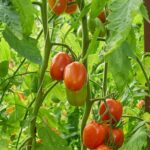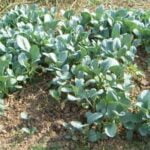Are you tired of dealing with pesky insects destroying your vegetable garden? Look no further. In this article, we will explore the world of safe insecticides for vegetable gardens. Keeping your plants healthy and free from harm is essential, and using safe insecticides is the key to achieving this. Traditional insecticides can pose risks to both your health and the environment, making it crucial to understand the importance of utilizing safe alternatives.
When it comes to protecting your vegetable garden from harmful pests, it’s important to avoid potentially harmful chemicals that traditional insecticides often contain. This is where safe insecticides come into play. Understanding what makes an insecticide safe and the different types available is essential in maintaining a healthy garden ecosystem without compromising safety.
Using safe insecticides in your vegetable garden has numerous benefits – not only do they effectively protect your plants from pests, but they also minimize any negative impact on the environment. By utilizing these safer alternatives, you can protect your crops while also preserving the delicate balance of nature within your gardening space. In this section, we will delve deeper into the world of safe insecticides for vegetable gardens and explore their benefits in more detail.
Understanding Safe Insecticides
Safe insecticides for vegetable gardens are essential in maintaining the health and productivity of the plants while ensuring the safety of the environment. Understanding what makes an insecticide safe is crucial in making informed choices when it comes to pest control in your garden.
Safe insecticides are those that effectively target pests while minimizing harm to beneficial insects, animals, and humans. These types of insecticides are often derived from natural sources and have low toxicity levels. Common examples include neem oil, insecticidal soaps, and diatomaceous earth. These products provide effective pest control without posing significant risks to the surrounding environment.
One of the main advantages of using safe insecticides in vegetable gardens is their ability to protect plants without causing harmful effects on the ecosystem. By specifically targeting pests and avoiding harmful chemicals, safe insecticides help maintain a balanced and healthy garden environment. Additionally, using safe insecticides reduces the risk of chemical residues on fruits and vegetables, making them safer for consumption.
A study by the University of California found that using integrated pest management techniques along with safe insecticides reduced overall pesticide use by 50% without compromising crop yields. This demonstrates how employing safe insecticides can lead to sustainable and environmentally-friendly practices in vegetable gardening.
| Safe Insecticide | Effectiveness |
|---|---|
| Neem Oil | Highly effective against aphids, whiteflies, and caterpillars |
| Insecticidal Soap | Eradicates soft-bodied insects such as mites and thrips |
| Diatomaceous Earth | Kills insects by damaging their exoskeletons |
Benefits of Using Safe Insecticides
Using safe insecticides in vegetable gardens offers a multitude of benefits for both the plants and the environment. By utilizing safe insecticides, gardeners can effectively protect their crops from pests while minimizing the potential harm to beneficial insects, animals, and humans.
The advantages of using safe insecticides include:
- Reduced environmental impact: Safe insecticides are formulated to target specific pests without harming non-target organisms or affecting the surrounding ecosystem. This helps maintain a healthy balance in the garden’s natural environment.
- Protection of beneficial insects: Many traditional insecticides not only target pests but also harm beneficial insects like bees, ladybugs, and earthworms. Safe insecticides are designed to minimize this collateral damage, preserving the natural allies that help control pest populations.
- Minimized health risks: Traditional insecticides often contain harmful chemicals that can pose health risks to humans and pets. Safe insecticides utilize natural or low-toxicity ingredients, reducing the potential for exposure to harmful substances.
To maximize these benefits, it is essential for gardeners to carefully select safe insecticides that align with their specific gardening needs and pest challenges. By choosing safe options, gardeners can protect their vegetable crops while promoting a sustainable and eco-friendly approach to pest management in their gardens.
Common Pests in Vegetable Gardens
Vegetable gardens are often susceptible to a variety of pests that can wreak havoc on the plants if left unchecked. Common pests include aphids, caterpillars, beetles, and mites, among others. These insects can consume the leaves, stems, and fruits of vegetables, leading to reduced yields and overall plant damage. It is important for gardeners to be able to identify these pests and take proactive measures to control their population in a safe and effective manner.
Potential Damage Caused by Pests
The presence of pests in vegetable gardens can result in significant damage if not addressed promptly. Aphids, for example, are known for sucking the sap from plants, causing them to wilt and become distorted. Caterpillars can devour entire leaves and even bore into fruit, while beetles feed on both foliage and fruits.
Additionally, some pests can transmit diseases from one plant to another, further compromising the health of the garden. As a result, it is vital for gardeners to have strategies in place for managing these common pests without resorting to harmful chemical insecticides.
Using Safe Insecticides for Pest Control
When it comes to addressing pest infestations in vegetable gardens, using safe insecticides is crucial for protecting both the plants and the environment. Safe insecticides are those that are derived from natural sources or have been extensively tested to ensure minimal impact on beneficial insects, wildlife, and human health. By incorporating safe insecticides into pest management strategies, gardeners can effectively control invasive insects while maintaining a healthy ecosystem within their gardens.
Safe Insecticides for Different Types of Pests
Safe insecticides are an essential part of maintaining a healthy vegetable garden. When it comes to effectively controlling pests that can damage crops, it’s important to use insecticides that are not only effective but also safe for the environment, wildlife, and the people who consume the vegetables.
Using traditional insecticides can pose serious harm to beneficial insects, including bees and other pollinators, as well as cause potential health risks to humans. Therefore, understanding and using safe insecticides is crucial for successful gardening.
One key factor that makes an insecticide safe is its ability to target specific pests without harming non-target organisms. Safe insecticides often utilize natural substances like plant oils, soaps, or minerals that have minimal impact on the environment. Additionally, they are designed to break down quickly in the environment, reducing residual effects on plants and soil.
There are several types of safe insecticides available for controlling different types of pests in vegetable gardens. For example, neem oil is effective against aphids, mites, and caterpillars while being relatively low in toxicity to humans and animals. Diatomaceous earth is another safe option for controlling slugs, snails, and other crawling insects without posing a threat to beneficial insects or wildlife. These examples demonstrate how safe insecticides offer targeted pest control while minimizing negative impacts on the ecosystem.
| Insecticide | Target Pests |
|---|---|
| Neem Oil | Aphids, Mites, Caterpillars |
| Diatomaceous Earth | Slugs, Snails, Crawling Insects |
DIY Safe Insecticide Recipes
Homemade Insecticidal Soap
One of the safest and most effective insecticides for vegetable gardens is homemade insecticidal soap. This simple mixture can be made using common household ingredients such as liquid dish soap and water. The soapy solution works by suffocating and dehydrating soft-bodied pests like aphids, whiteflies, and spider mites.
To make your own insecticidal soap, mix 1-2 teaspoons of mild liquid soap in a gallon of water. Pour the solution into a spray bottle and apply it to the affected plants, making sure to cover both the tops and bottoms of leaves.
Neem Oil Spray
Neem oil is another natural insecticide that is safe to use on vegetables. Extracted from the seeds of the neem tree, neem oil acts as a repellant, antifeedant, and disruptor of insect growth. It is effective against a wide range of pests including aphids, caterpillars, and beetles. To make a neem oil spray, mix one teaspoon of neem oil with a quart of warm water and a small amount of mild liquid soap. Shake well before spraying onto plants.
Garlic and Pepper Spray
A homemade garlic and pepper spray can also be used as an effective insecticide in vegetable gardens. This natural repellent works particularly well against chewing insects such as caterpillars and beetles. To make this spray, blend two whole cloves of garlic with two hot peppers until smooth.
Strain the mixture through cheesecloth or a fine sieve, then dilute with water in a 1:10 ratio (1 part garlic-pepper mixture to 10 parts water). Let it sit for 24 hours before straining again and transferring into a spray bottle for application.
By using these DIY safe insecticide recipes, gardeners can effectively control pests in their vegetable gardens without compromising the safety of their produce or harming beneficial insects like bees and ladybugs. These natural alternatives provide an environmentally friendly option for pest management while promoting healthy plant growth.
Tips for Using Safe Insecticides
Using safe insecticides in your vegetable garden is crucial to protecting the health of your plants and the environment. Here are some tips for using safe insecticides effectively:
- Choose the right product: When selecting a safe insecticide for your vegetable garden, ensure that it targets the specific pests you are dealing with. Look for products that are labeled as “safe” or “natural” and have been approved for organic gardening.
- Follow application instructions: It’s important to carefully read and follow the manufacturer’s instructions when applying safe insecticides. Pay attention to recommended dosage, frequency of application, and proper application methods. This will ensure maximum effectiveness while minimizing any potential risks.
- Timing is key: Apply safe insecticides during the early stages of pest infestation to prevent widespread damage to your plants. Regular monitoring of your garden will help you detect pest problems early on so that you can address them promptly.
In addition to these tips, it’s essential to consider safety precautions when using safe insecticides in your vegetable garden:
- Protect yourself: Wear protective clothing, gloves, and eyewear when handling and applying safe insecticides. This will minimize direct contact with the product and reduce any potential risks to your health.
- Avoid harming beneficial insects: Safe insecticides are designed to target harmful pests while preserving beneficial insects such as bees and ladybugs. Be mindful of how and where you apply the product to minimize any unintended harm to beneficial insects.
- Storage and disposal: Store safe insecticides in their original containers away from children and pets. Dispose of empty containers according to local regulations or recycling guidelines to minimize environmental impact.
By following these tips and precautions, you can effectively use safe insecticides in your vegetable garden without compromising the health of your plants or the natural environment. Remember that maintaining a healthy balance between pest control and environmental preservation is key to successful gardening.
The Future of Safe Insecticides
As the demand for organic and sustainable gardening practices continues to grow, the future of safe insecticides for vegetable gardens looks promising. With a focus on protecting plants without harming the environment, the development of new safe insecticides is becoming increasingly important. Researchers and manufacturers are investing in creating innovative solutions that effectively target pests while maintaining the safety of gardeners, consumers, and the ecosystem.
One of the key trends in the future of safe insecticides for vegetable gardens is the use of biopesticides. These are naturally occurring substances derived from animals, plants, bacteria, and certain minerals that control pests through non-toxic mechanisms. Biopesticides offer a safe alternative to traditional insecticides and are environmentally friendly, making them an attractive option for eco-conscious gardeners.
Another important development in the field of safe insecticides is the use of biotechnology to create genetically modified crops that resist pests. This approach reduces the need for chemical insecticides, as these crops have built-in resistance to common pests. Biotechnology allows for more targeted pest control methods that minimize the impact on beneficial insects and other non-target organisms, contributing to a more balanced ecosystem within vegetable gardens.
The future also holds potential for advanced delivery systems for safe insecticides, such as nanoencapsulation and controlled release technologies. These innovations aim to enhance the efficiency and longevity of insecticide applications while reducing their environmental impact. By incorporating these cutting-edge technologies into safe insecticide products, gardeners can expect improved performance with minimal adverse effects on surrounding ecosystems.
Overall, as research and technology continue to advance in the field of safe insecticides for vegetable gardens, gardeners can look forward to a wider range of effective and environmentally friendly pest control options. The future promises innovative solutions that not only protect plants from harmful pests but also contribute to sustainable gardening practices.
As awareness grows about the importance of using safe insecticides in vegetable gardens, it is likely that these developments will play a crucial role in shaping the landscape of pest management in horticulture.
Conclusion
In conclusion, the use of safe insecticides is crucial for maintaining a healthy and thriving vegetable garden. From protecting plants to preserving the environment, safe insecticides offer numerous benefits over traditional chemical-based options. By understanding what makes an insecticide safe and the different types available, gardeners can make informed decisions when it comes to pest control.
The importance of using safe insecticides for vegetable gardens cannot be overstated. Not only do they protect plants from pests without causing harm to the environment, but they also contribute to overall garden health and sustainability. By identifying common pests and utilizing specific safe insecticides designed to target them, gardeners can effectively manage infestations while minimizing negative impacts on beneficial insects and surrounding ecosystems.
As the demand for more eco-friendly and sustainable gardening practices continues to grow, the future of safe insecticides looks promising. With ongoing research and innovation in the industry, there are constant developments aimed at improving the effectiveness and safety of these products. By staying informed about the latest trends in safe insecticides for vegetable gardens, gardeners can look forward to even more effective and environmentally friendly options in the years to come.
Frequently Asked Questions
What Is the Safest Pesticide for Vegetables?
The safest pesticide for vegetables is one that specifically targets the pests affecting your vegetable plants while also being safe for consumption. Look for organic options such as neem oil or insecticidal soap to minimize harm to beneficial insects and animals.
What Is Safe to Spray on My Vegetable Garden?
When looking for something safe to spray on your vegetable garden, consider using natural remedies like a homemade garlic or chili pepper spray, which can help repel pests without causing harm to the plants or the environment. It’s important to avoid using chemical pesticides that may linger on the produce.
What Can I Use to Stop Bugs From Eating My Vegetable Plants?
To stop bugs from eating your vegetable plants, you can introduce beneficial insects like ladybugs or praying mantises into your garden. Additionally, you can use physical barriers such as row covers or companion planting with plants that naturally deter pests. If necessary, consider organic insecticides like diatomaceous earth which is safe for use on edible plants.

If you’re looking to get into vegetable gardening, or are just looking for some tips on how to make your current garden better, then you’ve come to the right place! My name is Ethel and I have been gardening for years. In this blog, I’m going to share with you some of my best tips on how to create a successful vegetable garden.





